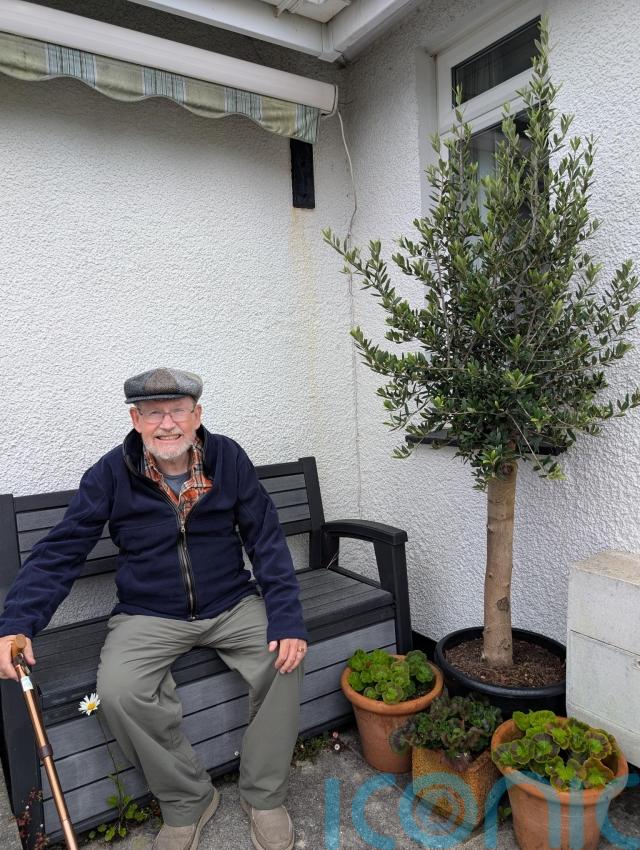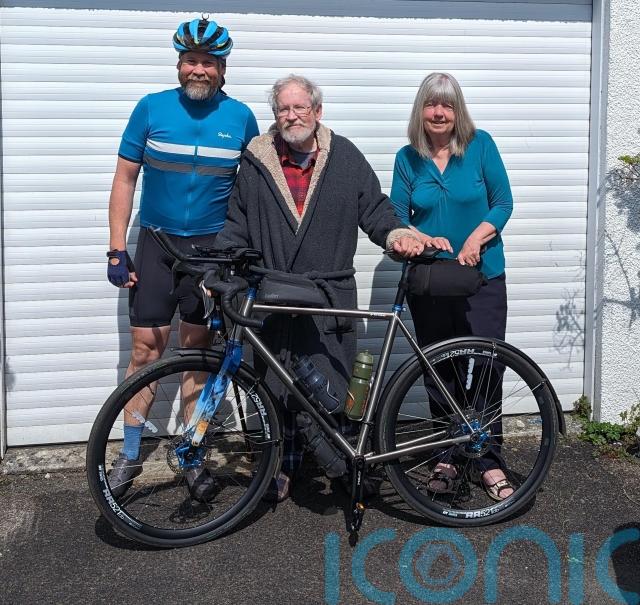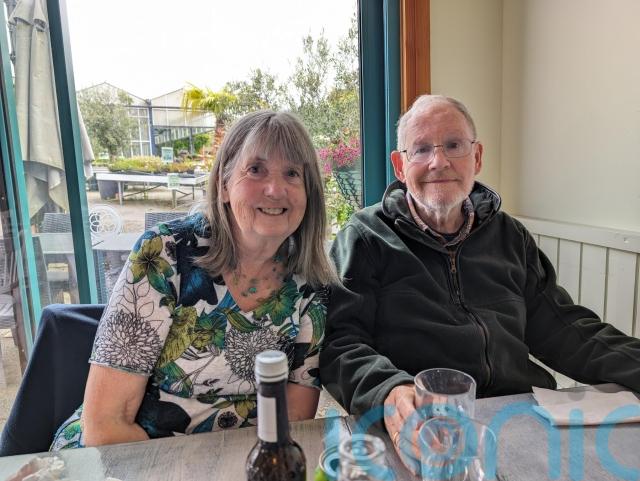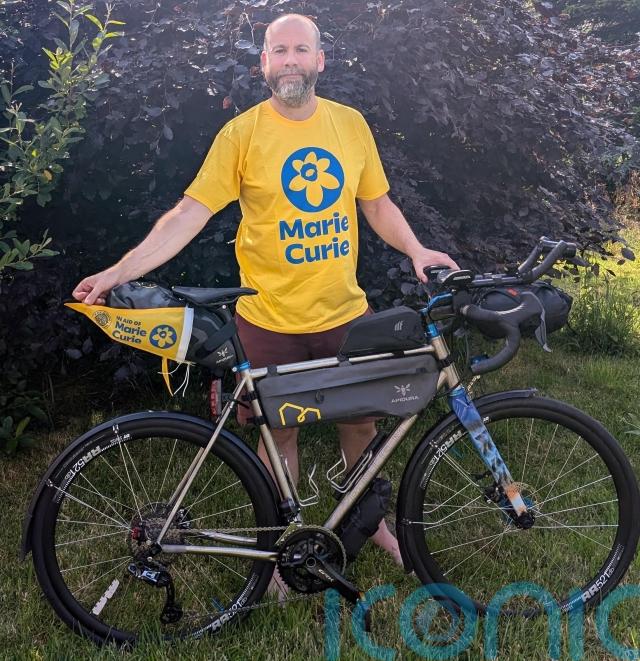
A dad from Cornwall whose father died in hospital where he didn’t want to be is encouraging people of all ages to discuss what a “good death” looks like to them, before it’s too late.
Matt Starling, 50, lost his dad Peter in August this year, after suddenly finding out he was terminally ill during hospital checks after a fall.
Peter, who was 82 when he died, was thought to be in relatively good health – though getting “frailer with age”, managing diabetes, and having suffered a number of strokes, Matt said he’d always made a “fairly good recovery” and was considered to be well.

In late July, Peter had a fall at home and, unable to get up by himself, paramedics attended.
They initially thought he had a urine infection and he stayed at home to recover, but the next day Peter’s condition deteriorated and he was admitted to hospital.
While in hospital, doctors discovered Peter had advanced leukaemia, which had gone undetected since he didn’t have any outward signs of the disease, and advised his family there was, sadly, nothing they could do.
It was then that Peter insisted he wanted to go home, to die at home – a wish his family never knew he held – but due to logistical complications, he passed away before he was able to return home.
The stress and heartache that trying to fulfil his dad’s wishes caused has inspired Matt to open up conversations with his wife and 20-year-old daughter about what a “good death” means to them, so that whenever that inevitable time comes, the remaining family can prepare to deliver their wishes as much as possible.
“It just feels wrong, that this thing that is so inevitable – at the end of the day, it is the one thing we can be certain of – we can’t have a conversation about,” Matt told PA Real Life.
“It doesn’t have to be morbid, it doesn’t have to be gloomy…
“It’s that sense for me that if we can have conversations now, talk about it now, it makes it easier for those that are here. But also, it means you can perhaps do that last bit for the person that isn’t, knowing that you are doing what they wanted.

“Because, again, making decisions or judgments in the heat of what’s going on was difficult and just added to all the other stress that was going on.”
In the years leading up to Peter’s death, his health had deteriorated as he suffered a number of strokes, but Matt said he’d always made a “fairly good recovery”, though was becoming “frailer with age”.
Unbeknownst to Matt and his two brothers, Peter’s care needs had increased in recent years.
Matt said his parents always had a “traditional relationship”, with his dad being the breadwinner and his mum Pamela the homemaker, but it came to light while Peter was in hospital that Pamela had been taking on more care responsibilities following his strokes.
“I think quite a lot of that was really hidden by my mum, who provided that care for him,” Matt said.
“He became perhaps less independent than he’d been, but the whole family weren’t really aware of that, because Mum always had sort of fussed over him.
“They had quite a traditional relationship in terms of dad had been the main breadwinner for many years, mum was the traditional homemaker, and so my dad never was proactive in the house. So we didn’t almost see him becoming less and less so.”
When Peter ended up in hospital following the fall, it became apparent that he had a real phobia of hospitals – particularly after the length of time he’d spent on wards following his strokes.

After doctors diagnosed him with leukaemia and advised that there was no treatment plan for him, Peter became insistent that he return home for however many days or weeks he had left.
The doctors agreed, and Peter was kept in sterile isolation to minimise the risk of infection while his medical team fast-tracked funding for the equipment and care assistance he’d need to return home.
Before then, Peter had never told his family that his wishes were that he’d die at home, otherwise plans could potentially have been put in motion earlier.
However, despite the necessary funding being made available by the NHS, because of lack of availability of carers from local commercial care providers it wasn’t possible to establish the right home care for Peter in such a short time frame.
Sadly, the family weren’t able to get him home before he passed away, three weeks after his fall.
While talking about death and wishes for after we’re gone is often seen as a morbid conversation, one that’s to be avoided, Matt has learned that it could minimise the heartache of losing a loved one if those closest to them are made aware of what a good death means to them.
Matt only knew that his dad wished to be cremated – he didn’t know where he would prefer to be when he passed away, nor what he wanted from his funeral – adding logistical pressure and emotional decision making during the difficult period of immediate grief.
Now, Matt is speaking out about his experience in the hope that other people have these conversations early, drawing attention to Marie Curie’s “End of Life List”, a practical checklist that sets out everything to consider when preparing for the end of life.

According to the charity, 31% of people find it too frightening to think about the end of life, making it difficult to initiate these all-important conversations.
More than half of people – 56% – admit to putting off planning for death until their health significantly deteriorates, or they receive a terminal diagnosis.
However, as Matt points out, “it doesn’t have to be morbid, it doesn’t have to be gloomy”.
Indeed, he has already spoken to his 20-year-old daughter and his wife about where he’d like to be when he dies, and how he’d like to be celebrated when he’s no longer here.
He’s also spoken to his mum, who emphatically told him she doesn’t want to be at home when she dies, and now her wishes are known the family can do their best to make sure her death is as good for her as possible when the time comes.
“It feels easier to have them when, hopefully, it’s a very, very long time in the future, rather than having to have that conversation at that time when you’re looking at practical stuff,” Matt said.
“The things that are perhaps more about personal wishes and thoughts, those conversations could be had so much earlier.”
To download Marie Curie’s End of Life List, visit mariecurie.org.uk/withyou.
Marie Curie is the UK’s leading end of life charity and supports anyone with any illness they’re likely to die from and their loved ones.
The charities information and support line is a free helpline for practical information or a listening ear, and is open seven days a week.
You can call 0800 090 2309 or visit mariecurie.org.uk/support.
Subscribe or register today to discover more from DonegalLive.ie
Buy the e-paper of the Donegal Democrat, Donegal People's Press, Donegal Post and Inish Times here for instant access to Donegal's premier news titles.
Keep up with the latest news from Donegal with our daily newsletter featuring the most important stories of the day delivered to your inbox every evening at 5pm.